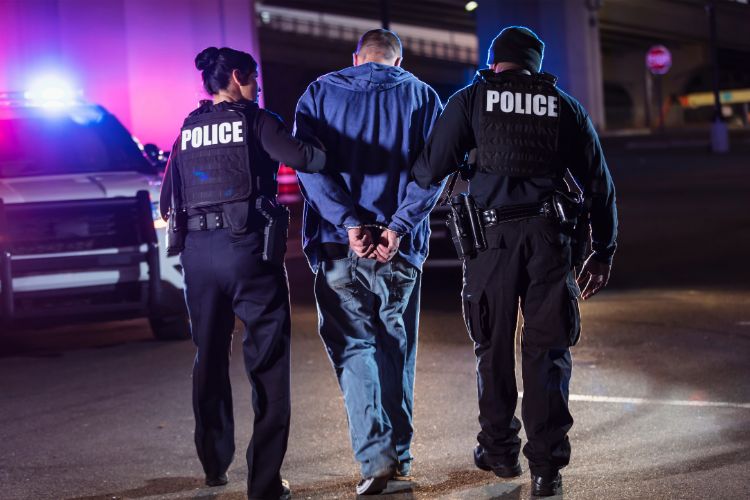
After an arrest, one of the individuals’ most common mistakes is speaking to law enforcement without an attorney. In the heat of the moment, you may feel compelled to explain yourself or clarify the situation. However, this impulse can be detrimental. Anything you say can—and will—be used against you in court. Even innocent statements can be misconstrued or taken out of context, potentially harming your defense.
The Role of an Attorney: Your First Line of Defense
An attorney’s presence is not just a formality; it’s your first line of defense. A skilled Arizona criminal defense attorney understands the intricacies of the law and can guide you on what to say—or, more importantly, what not to say—to protect your rights. Before answering any questions or making any statements, always insist on having your attorney present. This simple step can prevent you from inadvertently compromising your case.
What Are Miranda Rights?
Miranda’s Rights are a cornerstone of American legal protection, yet many people still need to understand them fully. These rights, famously recited in countless TV shows and movies, include the right to remain silent and the right to an attorney. When you’re taken into custody, these rights should be read to you by the arresting officer. They remind you that you don’t have to speak or provide any information that could be used against you.
Consequences of Waiving Your Rights
Waiving your Miranda Rights can lead to severe consequences. If you choose to speak without invoking your right to an attorney, you open yourself up to questioning that could result in self-incrimination. Even if you believe you have nothing to hide, the complexity of legal language and procedures means your words could be twisted or misinterpreted, damaging your case. Always exercise your Miranda Rights fully, ensuring you have legal representation before engaging in any discussions with law enforcement.
Failing to Secure Bail: The Importance of Early Release

After an arrest, securing bail should be a top priority. Posting bail allows you to return home, where you can better prepare for your legal defense, gather evidence, and consult with your attorney. Being out on bail also enables you to maintain your employment and family responsibilities, which can be crucial for your financial stability and mental well-being during this challenging time.
Standard Bail Mistakes to Avoid
However, the bail process can be fraught with pitfalls. Refraining from relying on unreliable bail bond agents or failing to understand the terms of your bail can lead to complications, such as being re-arrested for violating bail conditions. Additionally, misjudging the amount needed for bail or attempting to post bail without professional guidance can result in delays or even the forfeiture of your bail. It’s essential to work with a reputable bail bond agent and consult your attorney to ensure that bail is secured correctly and promptly.
Resisting Arrest: Why It’s Never Worth the Risk

Resisting arrest is a severe offense that can significantly complicate your legal situation. It’s essential to understand what actions are considered resisting. Physical resistance, such as pulling away or pushing back against an officer, is the most apparent form. However, verbal resistance—like arguing with or threatening the officer—can also be classified as resisting. Even passive resistance, such as refusing to cooperate or follow instructions, can incur additional charges.
Legal Repercussions of Resistance
The consequences of resisting arrest can be severe. Not only can it lead to additional charges, but it also paints a negative picture of you in court. Judges and juries may view resistance as an indication of guilt or a lack of respect for the law, which can negatively impact your case. It’s crucial to remain calm and compliant during an arrest, even if you believe it is unjust. You’ll have the opportunity to contest the charges in court with the help of your attorney—resisting arrest will only make that process more difficult.
The Power of Detailed Documentation
In the aftermath of an arrest, detailed documentation can be a powerful tool for your defense. This includes noting the time of the arrest, the behavior of the officers involved, and any statements made by you or the officers. If there were any witnesses, make sure to get their contact information. Documenting these details as soon as possible ensures that your recollection is accurate and can serve as crucial evidence in your defense.
How Proper Documentation Supports Your Defense
Proper documentation can help your attorney build a stronger case. For example, if an officer misbehaved or violated your rights during the arrest, your documentation can support a motion to dismiss evidence or even the charges. Similarly, inconsistencies between your account and the police report can be highlighted to question the validity of the charges. In short, the more detailed your documentation, the better your attorney will be equipped to defend you in court.
The Dangers of Downplaying Your Situation

It’s a common misconception that minor charges don’t require serious attention. However, even insignificant charges can have significant consequences if not handled properly. For instance, a misdemeanor conviction can still result in fines, probation, or even jail time, as well as a permanent mark on your criminal record that could affect your future employment, housing, and more.
How Overconfidence Can Lead to Costly Mistakes
Overconfidence in navigating the legal system without professional help can be a costly mistake. The legal system is complex; even minor procedural errors can have significant consequences. You risk making decisions that could worsen your situation by underestimating the seriousness of the charges or overestimating your ability to handle them on your own. It’s always advisable to take every charge seriously and seek the guidance of a qualified attorney.
The Risks of Going with the Cheapest Option
When facing criminal charges, your chosen attorney can make or break your case. While it might be tempting to select the cheapest option, this can be costly. Inexperienced or underqualified attorneys may need to gain the necessary knowledge or skills to effectively defend you, potentially leading to a poor outcome in your case.
What to Look for in a Criminal Defense Lawyer
Selecting the right criminal defense lawyer requires careful consideration. Look for an attorney with a solid criminal defense track record, particularly in similar cases. Experience in Arizona’s legal system is crucial, as the attorney will be familiar with local laws, judges, and prosecutors. Consider the attorney’s communication skills, availability, and willingness to listen to your concerns. The right attorney should make you feel confident in your defense and well-supported throughout the legal process.
Securing Your Best Defense by Avoiding Common Pitfalls
The aftermath of an arrest is a critical time when every decision can have significant repercussions. By avoiding these common mistakes—speaking without an attorney, waiving your Miranda Rights, failing to secure bail, resisting arrest, neglecting to document the incident, underestimating the charges, and choosing the wrong attorney—you can protect your rights and improve your chances of a favorable outcome. The best defense begins with informed choices, so act wisely and seek professional legal counsel as soon as possible to safeguard your future.





